It seems like doping in sports is never out of the headlines for long, and while I was reading this book the ‘mystery package’ for Team Sky story broke. This led to denials of any wrong doing, and sufficient questions about Team Sky activities that a UK Anti Doping investigation was launched. Timely then that I should be reading this book, which chronicles drug taking in sport through the scientific innovations and social changes that lead to the environment in which Team Sky and sporting professionals now operate.
Each chapter focuses on a specific era or scenario that has shaped the policies of drug use in sport today. It’s fairly chronological, although some steps back and forth in time do take place. It’s pretty dense reading, with many many footnotes and references, although there’s enough of an intriguing tale there to keep you going through the detail.
One chapter covers in some detail the mis-quoting and repeated mis-referencing of ‘facts’ about EPO deaths which Johnson claims are in fact untrue and unfounded. He states that by repeatedly restating reports which were not grounded in fact, EPO gained a reputation for killing cyclists, when no evidence to support this claim can actually be found. I have no means of fact checking this, however if it is true then certainly one should be careful not to assume that because a claim is referenced it is true. With this in mind, I felt inclined to take a slightly sceptical view of the many references included in this book – I’m not going to fact check them, but the book itself seems to say that you shouldn’t always take what you’re told at face value.
On the assumption that the references are accurate, and the book does indeed list facts rather than fabrications, it’s a fascinating narrative. From the early days of professional sport, where doing (and taking) whatever it took to win was seen as part of the job, through to the creation of the notion of ‘clean sport’, this book tells a tale that suggests that the ‘doping is bad’ modern perspective is largely the result of social and political ideals and economic pressures rather than a quest to protect athletes’ health and safety.
Not wanting to give too much away, as this book is worth a read, each chapter looks at a different aspect of these influencing factors. Reading it, I found each chapter to provide quite a compelling argument that each factor had led to an illogical or skewed policy decision which served the needs of policy makers at least as much as the athletes affected by the decisions. In essence, each chapter illustrated either why the law is an ass, or why athletes were encouraged to exploit grey areas within the rules. Blame the system, not the doper. However, I was also uncomfortable reading this series of detailed excuses – rule breaking is naughty, right? We all have our own responsibility to do what we think is right, regardless of the pressure to behave otherwise. Were these chapters just an apologist’s stance on doping? Excuses for poor behaviour?
In all honesty, I’m still undecided. The descriptions of rule making and breaking for political and financial gain paint a murky picture of sporting governance – and particularly the Olympic movement – that is easy to believe. It is also easy to sympathise with athletes caught up in what appears to be a moving and arbitrary set of rules. On the other hand, without the desire to have athletes perform ‘clean’, what is there? Sporting achievement at any cost? The athlete who wins is the one who is prepared to shine bright but briefly, burning out having expended their body’s resources? Or, as the book discusses in one chapter, genetically selected and modified super-beings, bred for athletic traits against which no standard-evolved human could compete? In such environments, what purpose would elite sport serve? Knowing that you had no chance of emulating your idols, would people still be inspired to do sport just for sport’s sake? Indeed, the book explains that sport for sport’s sake is what the Olympic movement set out to promote in the face of increasing ‘professional’ sports such as cycling – although this had as much to do with maintaining class distinctions as it did with health and well being.
Unlike many non-fiction books I’ve started, I never had any doubts that I would finish this book. Some of the prose is a little clunky, and the are occasional repetitions of quotes from one chapter to another, but on the whole it’s a good thought provoking read and the pages turn easily.
Overall: A good background to the current state of elite sports, sports science, and doping. Prepare to have your ideals challenged.
Review Info
| Brand: | Mark Johnson |
| Product: | Spitting In The Soup: Inside The Dirt Game Of Doping In Sports |
| From: | Velopress |
| Price: | £19.99 Hardcover |
| Tested: | by Hannah for |
Comments (0)
Leave Reply
Post Comment
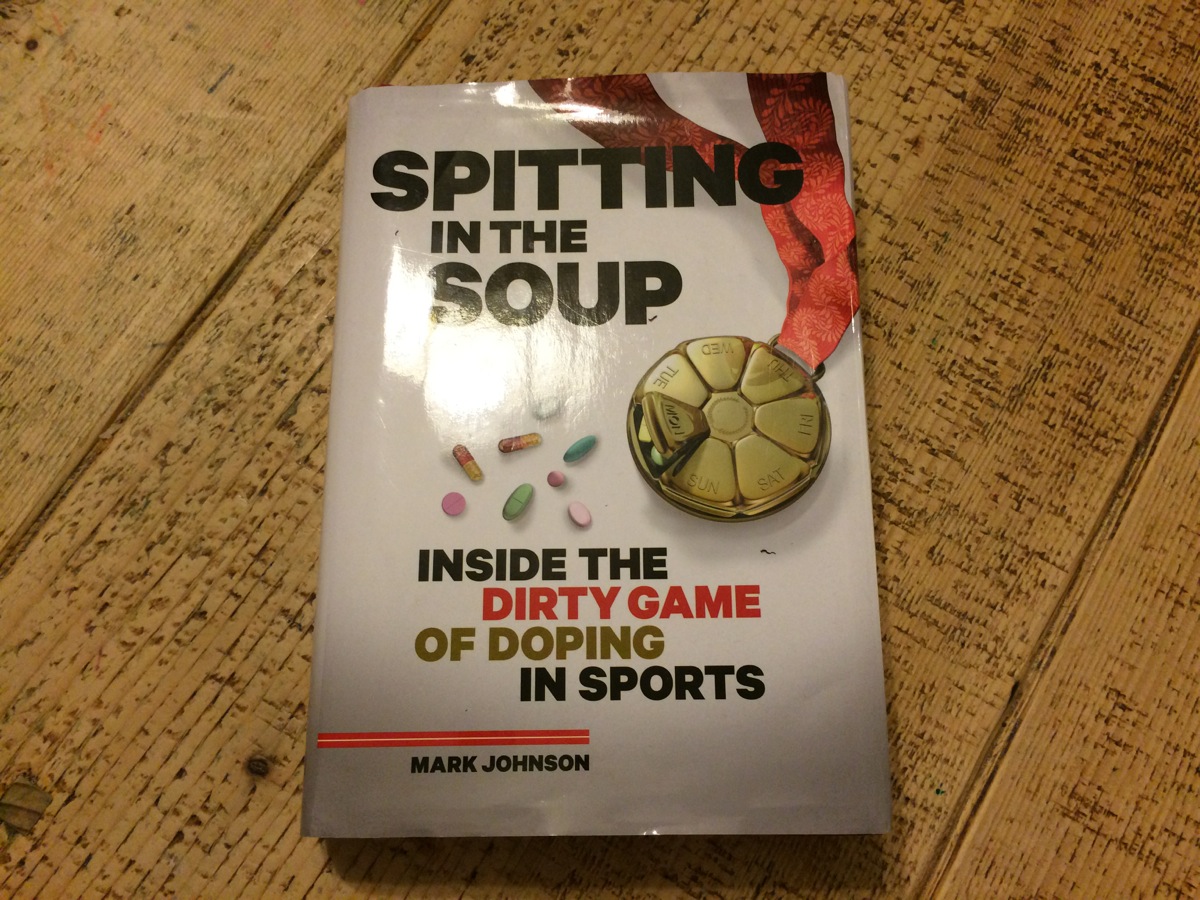
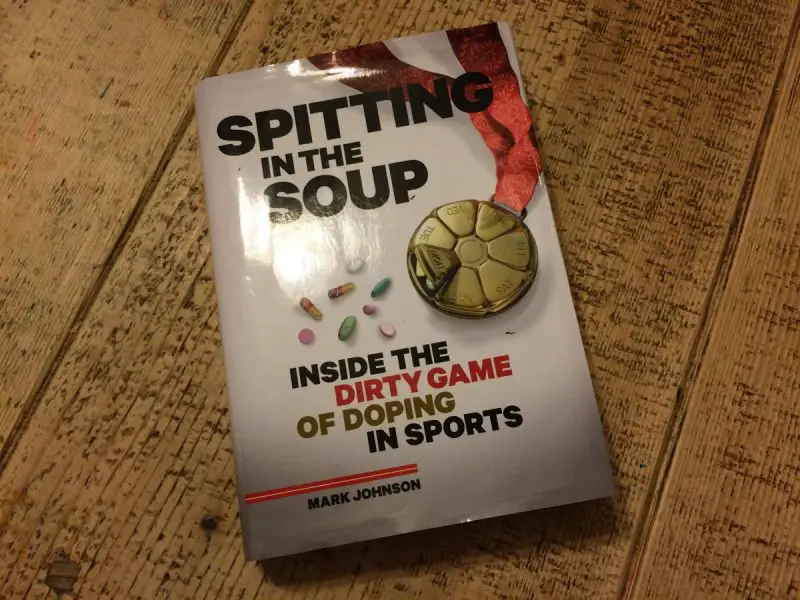

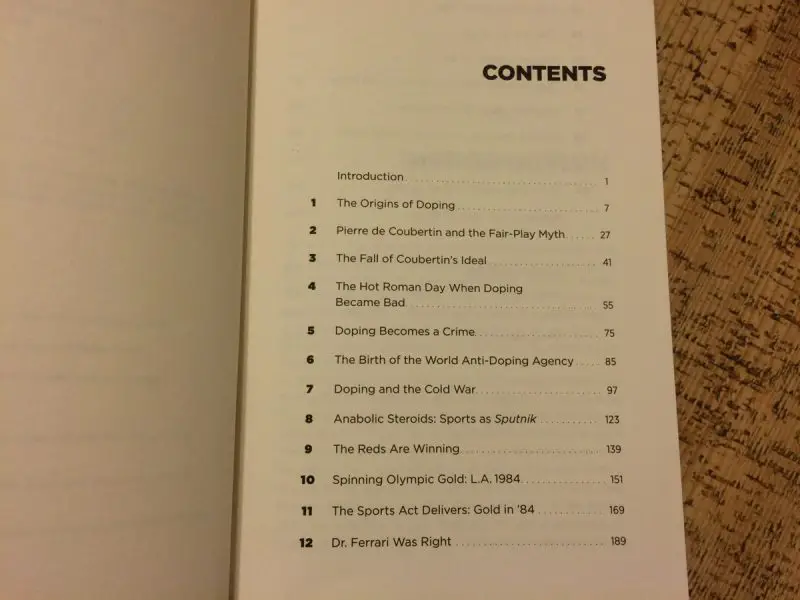
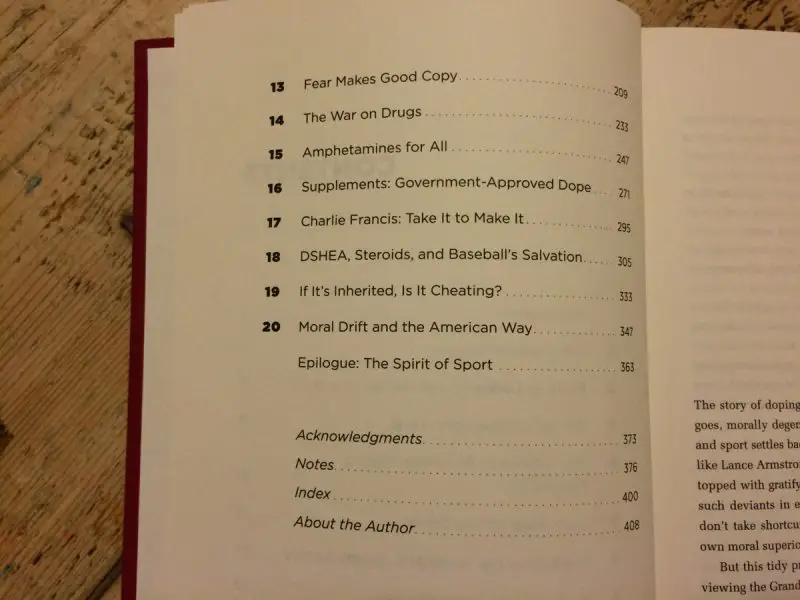
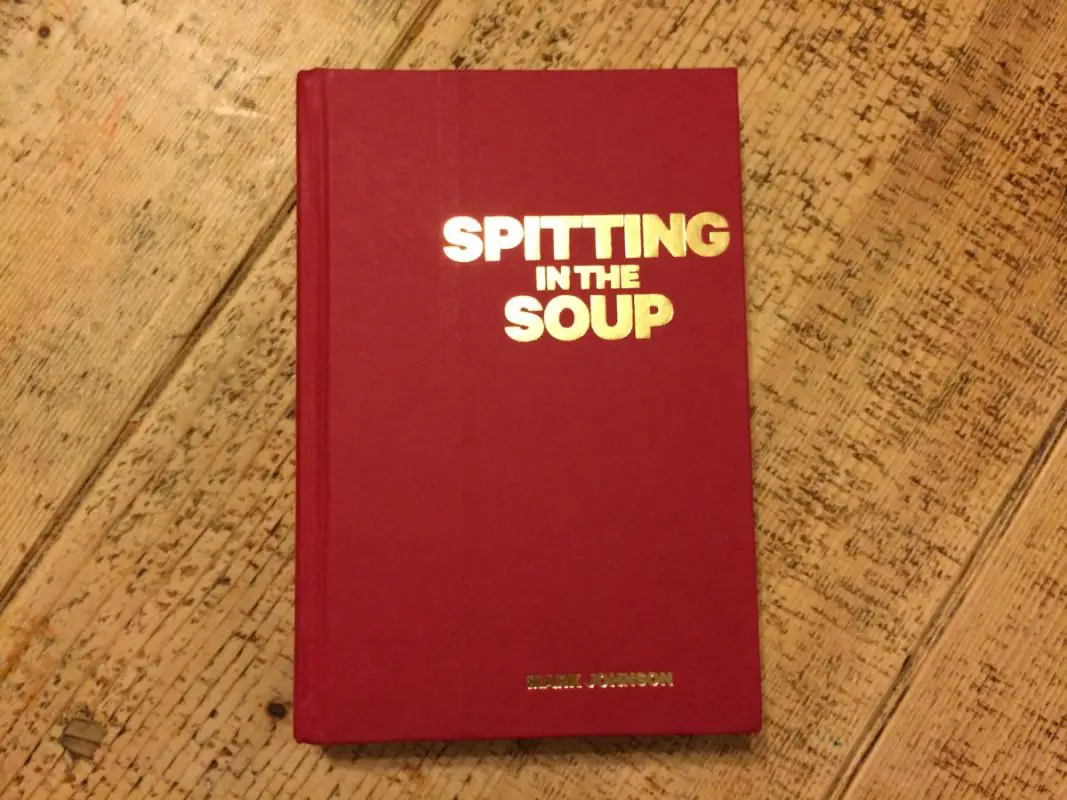

Interesting. I may see if I can pick it up from the library. The concept of cheating is a bit of an ephemeral one IMHO. Is a drugs cheat any worse than a football player who looks to gain advantage for his or her team by committing a deliberate foul or taking a dive? (Setting aside the health issue for a minute obviously). Not a footy fan and get pee’d off by fans who slag all cyclists as drug cheats but seem happy to accept the many instances of “cheating” in every game that takes place, unless of course it results in their team losing.
As I opened with, interesting.